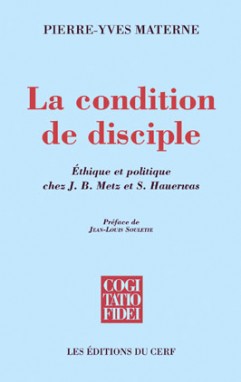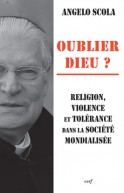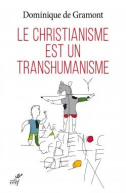La Condition de disciple - CF 289
Collection Cogitatio Fidei - N° 289
480 pages - juin 2013
44,00€
Y a-t-il une manière spécifiquement chrétienne de comprendre le politique et de s’y investir ? Si l’un des exercices nécessaires de la foi chrétienne consiste à contribuer à une société plus juste et à réaliser l’avènement du Royaume dans l’histoire, il faut dire la source de l’engagement chrétien. Le défi est double : le fidèle doit honorer l’originalité de sa foi mais aussi respecter la vocation universelle de l’Évangile. En effet, la foi habitée doit pouvoir s’adresser à tous, dans un monde lui-même globalisé. Pour penser cette recherche, deux auteurs se révèlent particulièrement stimulants : Johann Baptist Metz et Stanley Hauerwas. Ces deux théologiens contemporains appartiennent à deux traditions ecclésiales distinctes (catholique et protestante) et à deux contextes culturels différents (européen et nord-américain). Ils refusent aussi bien la privatisation de la foi qui a caractérisé nos sociétés occidentales que l’instrumentalisation politique du religieux dont l’actualité témoigne constamment. Contre la tentation du repli individualiste, ils rappellent les dimensions intersubjective, communautaire et politique de la vie chrétienne. Ils soulignent l'importance du récit dans la théologie et le rôle de l’autorité pour évaluer l’action. De manière convergente, Johann Baptist Metz et Stanley Hauerwas envisagent la foi en tant que récit d’un engagement au service des autres. À partir de l’œuvre de ces auteurs, il devient possible de penser la condition chrétienne comme une « condition de disciple ». En effet, devenir disciple de Jésus consiste à mettre en œuvre la politique de l’Évangile. Cette « théologie politique » fait appel aux ressources de la foi et de la raison pour agir de façon responsable « avec et pour autrui », sans jamais tourner le dos aux souffrances humaines. La politique de l’Évangile n’est pas un sectarisme mais le dépassement des frontières pour accueillir le Royaume qui vient.
--
Is there a specifically Christian way of understanding political life, and participating? Although the Christian faith requires that we contribute to making society more just and work for the advent of the Kingdom in history, we have to define the source of Christian commitment. The challenge is twofold: the faithful should honour the originality of their faith but also respect the universal vocation of the Gospel. In reality, living faith must be able to address all, in a globalized world. For this research, two authors are particularly inspiring: Johann Baptist Metz and Stanley Hauerwas. These two contemporary theologians belong to different ecclesial traditions (Catholic and Protestant) and two different cultural contexts (European and North American). They refuse both the ‘privatisation’ of faith which characterized Western societies and the political instrumentalization of religion, clearly present in today’s headlines. Warning against the temptation of individualist withdrawal, they remind us of the intersubjective, community and political dimensions of Christian life. They stress the importance of the narrative in theology and the role of authority in the evaluation of action. Johann Baptist Metz and Stanley Hauerwas converge in considering faith as the account of a commitment to the service of others. Taking the work of these authors as a basis for reflection, it becomes possible to ponder the Christian condition as a ‘condition of disciple’. In truth, to become a disciple of Jesus means applying the politics of the Gospel. This ‘political theology’ calls on the resources of faith and reason, in order to act in a responsible way ‘with and for others’, never turning one’s back on human suffering. The politics of the Gospel is not sectarian; it breaks down barriers to prepare the advent of the Kingdom.
--
Is there a specifically Christian way of understanding political life, and participating? Although the Christian faith requires that we contribute to making society more just and work for the advent of the Kingdom in history, we have to define the source of Christian commitment. The challenge is twofold: the faithful should honour the originality of their faith but also respect the universal vocation of the Gospel. In reality, living faith must be able to address all, in a globalized world. For this research, two authors are particularly inspiring: Johann Baptist Metz and Stanley Hauerwas. These two contemporary theologians belong to different ecclesial traditions (Catholic and Protestant) and two different cultural contexts (European and North American). They refuse both the ‘privatisation’ of faith which characterized Western societies and the political instrumentalization of religion, clearly present in today’s headlines. Warning against the temptation of individualist withdrawal, they remind us of the intersubjective, community and political dimensions of Christian life. They stress the importance of the narrative in theology and the role of authority in the evaluation of action. Johann Baptist Metz and Stanley Hauerwas converge in considering faith as the account of a commitment to the service of others. Taking the work of these authors as a basis for reflection, it becomes possible to ponder the Christian condition as a ‘condition of disciple’. In truth, to become a disciple of Jesus means applying the politics of the Gospel. This ‘political theology’ calls on the resources of faith and reason, in order to act in a responsible way ‘with and for others’, never turning one’s back on human suffering. The politics of the Gospel is not sectarian; it breaks down barriers to prepare the advent of the Kingdom.
- Dimensions : 135x215x32
- ISBN : 9782204099622
- Poids : 590 grammes
Avec la collaboration de : Jean-Louis Souletie







